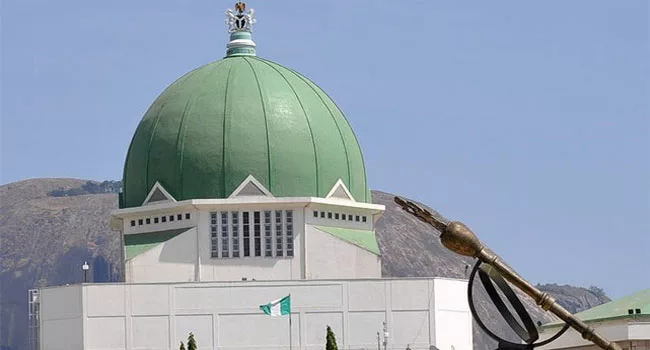Socioeconomic Rights and Accountability Project (SERAP) has threatened to sue the National Assembly if it fails to cut its N228.1 billion budget including the N30.17billion severance payments and inauguration costs for members.
SERAP, which gave the senate president, Ahmad Lawan and the speaker of House of Representatives, Femi Gbajabiamila seven days to meet its demands, described the budget increase as unlawful, and unfair to the Nigerian people.
It said this outrageous waste of public money would substantially increase the cost of governance, and exacerbate the debt crisis, adding that it is unlawful and unfair to the Nigerian people.
The civil society organisation, in an open letter dated January 14, 2023 and signed by its deputy director, Kolawole Oluwadare, also stated that if the outrageous waste of public money is allowed to stand it would substantially increase the cost of governance, and exacerbate the debt crisis.
SERAP, therefore, urged the National Assembly to propose a fresh budget that would reflect the current economic realities in the country, address the debt crisis, and prevent retrogressive economic measures.
The lawmakers have increased their 2023 budget from N169 billion proposed by President Muhammadu Buhari to N228.1 billion.
The approved budget shows an increase of about N59.1bn. The country’s budget of N21.83tn is based on a N10.49tn revenue, and N11.34tn deficit.
SERAP in its letter to the leadership of the National Assembly maintained that it is a grave violation of the public trust and constitutional oath of office for the members of the National Assembly to increase their own budget at a time when some 133 million Nigerians are living in poverty.
It stressed that cutting the budget would reduce the growing budget deficit, address the unsustainable debt burden and serve the public interest.
The organisation said that by increasing its own budget, the National Assembly has unjustifiably and disproportionately reduced the budget for UBEC and that it is a travesty, especially given that Nigeria currently has over 20 million out-of-school children, and half of all poor people in the country are children.
The letter, read in part, “Rather than exercising its oversight functions to check the persistent borrowing by President Muhammadu Buhari, and scrutinising the apparently unlawful overdrafts and loans obtained by the Federal Government from the Central Bank of Nigeria, the National Assembly is increasing its own budget.
“This outrageous waste of public money would substantially increase the cost of governance, and exacerbate the debt crisis. It is unlawful, and unfair to the Nigerian people.
“The budget should reflect national development priorities, and not serve as a tool to satisfy the lifestyle of lawmakers or provide them with severance payments or parting gifts,” it stated.
SERAP also urged the lawmakers to ask President Buhari to present a fresh supplementary appropriation bill which would reflects the reduced budget for the approval of the National Assembly.
The civil society organisation further cited section 14(2)(b) of the Nigerian Constitution of 1999 (as amended) which provides that, “the security and welfare of the people shall be the primary purpose of government.”
It also pointed out that under Section 16(1)(a)(b), the National Assembly has the obligations to, “Harness the resources of the nation and promote national prosperity and an efficient, a dynamic and self-reliant economy and to secure the maximum welfare, freedom and happiness of every citizen.”
It noted that Nigeria has also ratified the African Charter on Human and Peoples’ Rights and the International Covenant on Economic, Social and Cultural Rights, which recognized legally enforceable economic and social rights, such as the rights to education, health, safe food and clean water, security, and shelter.











